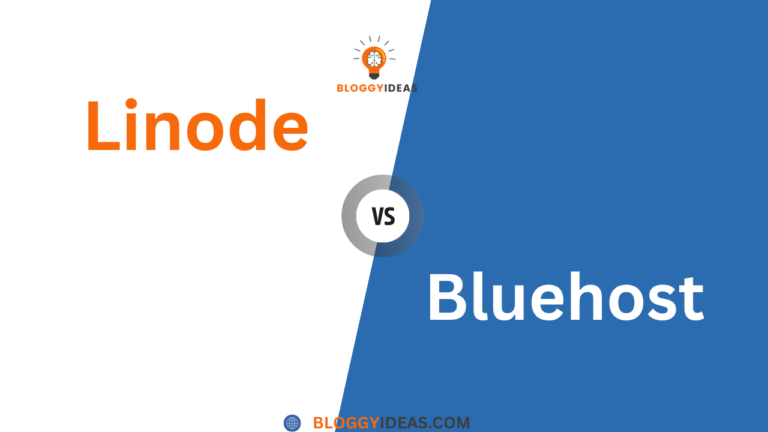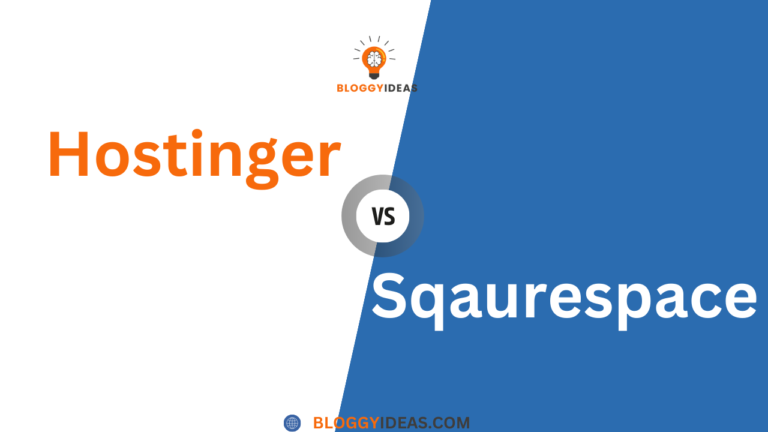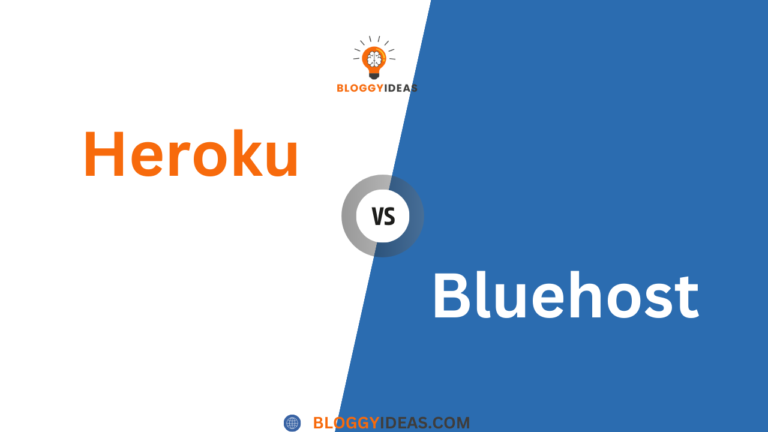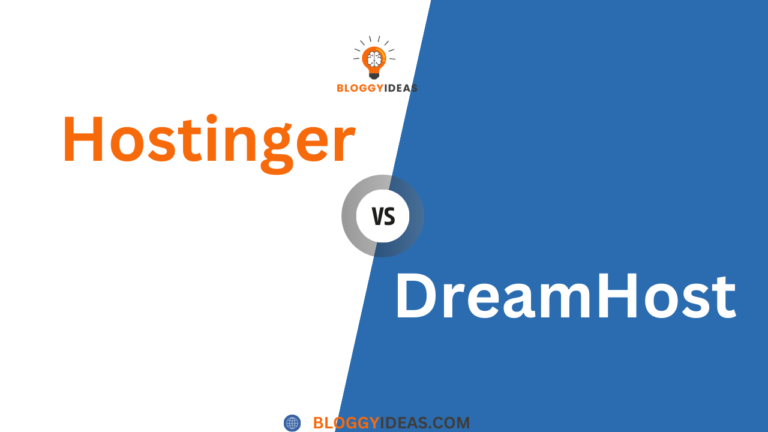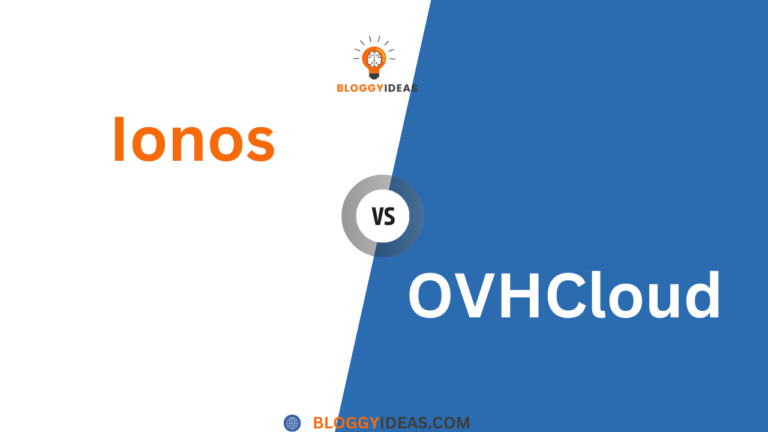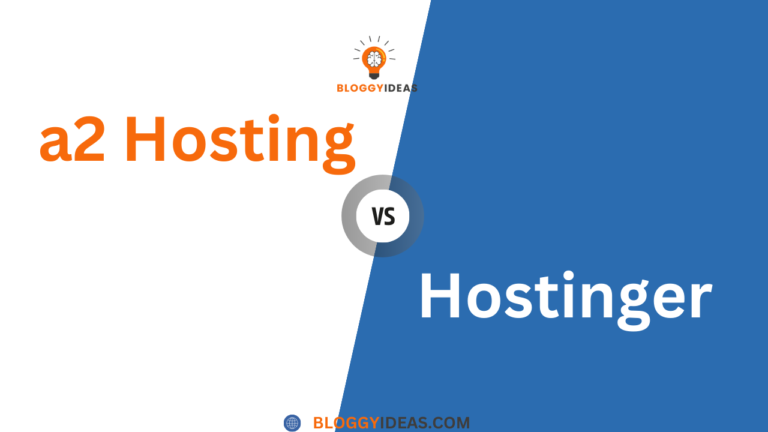Hostinger vs Shopify: Which Should You Choose
“Quick Overview” Choosing the right platform for your online presence is crucial for the success of your business. In this blog post, we will delve into the comparison between Hostinger and Shopify, two popular platforms offering solutions for creating and managing websites and online stores.
By examining their features, pricing, ease of use, and suitability for different types of businesses, we aim to provide you with valuable insights to help you make an informed decision on which platform best suits your needs.
Whether you’re a small startup, a growing medium-sized business, or a large enterprise, understanding the differences between Hostinger and Shopify is essential in determining the most suitable option for your online venture.
Overview of Hostinger
Hostinger is a reputable web hosting company founded in 2004 with a mission to provide affordable hosting solutions for individuals and businesses worldwide.
Known for its competitive pricing, fast loading times, and reliable uptime, Hostinger offers a range of hosting services, including shared hosting, cloud hosting, VPS hosting, and WordPress hosting. With an intuitive control panel, SSD storage, free SSL certificates, and 24/7 customer support, Hostinger empowers users to create and manage their websites with ease.
Whether you’re a beginner looking to launch your first website or a seasoned developer seeking reliable hosting solutions, Hostinger offers the tools and support you need to succeed online.
Top Recommended Resources for Success
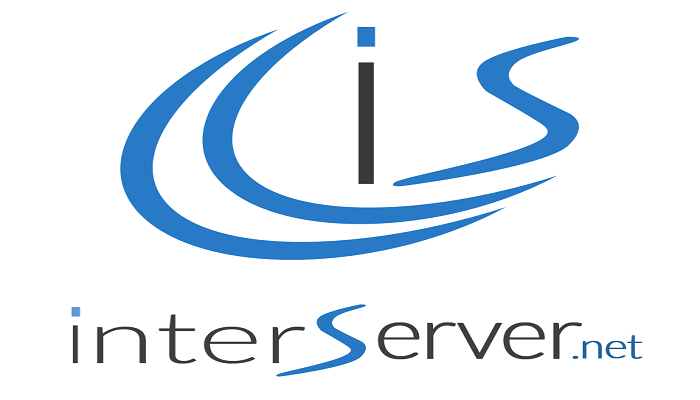
The Best Web Hosting Services at 20x Speeds
InterServer
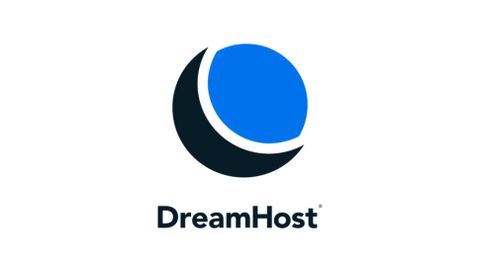
The Best Web Hosting Services at 20x Speeds
Dream Host

The Best Web Hosting Services at 20x Speeds
Bluehost
History and Background
Hostinger was founded in 2004 by a group of developers who wanted to provide affordable web hosting solutions to individuals and businesses around the world. Originally named “Hosting Media,” the company rebranded as Hostinger in 2011.
Since then, Hostinger has grown rapidly and now serves millions of customers worldwide. The company is known for its commitment to offering high-quality hosting services at competitive prices.
Key Features and Offerings
Hostinger offers a range of hosting services, including shared hosting, cloud hosting, VPS hosting, and WordPress hosting. Some key features and offerings of Hostinger include:
- Fast loading times and high uptime guarantees.
- Easy-to-use control panel for managing websites and domains.
- Free domain registration or transfer with select hosting plans.
- One-click installer for popular web applications such as WordPress, Joomla, and Drupal.
- SSD storage for improved website performance.
- Free SSL certificate to secure websites and protect user data.
- 24/7 customer support via live chat and ticketing system.
Pros of Hostinger
- Affordable Pricing: Hostinger offers budget-friendly hosting plans suitable for individuals and businesses of all sizes, allowing you to establish an online presence without breaking the bank.
- Fast Loading Times: With SSD storage and optimized servers, Hostinger ensures fast loading times for websites, enhancing user experience and search engine rankings.
- Reliable Uptime: Hostinger guarantees excellent uptime, ensuring that your website remains accessible to visitors around the clock without interruptions.
- Easy-to-Use Control Panel: Hostinger’s intuitive control panel makes it easy to manage your website, domains, emails, and other hosting settings, even for beginners.
- Secure Hosting Environment: Hostinger provides robust security measures, including free SSL certificates, DDoS protection, and malware scanning, to safeguard your website and data from cyber threats.
- Scalability: Whether you’re starting small or experiencing rapid growth, Hostinger offers scalable hosting solutions that can accommodate your evolving needs and traffic fluctuations.
- Extensive Features: Hostinger offers a wide range of features, including one-click installations, website builders, domain registration, and more, empowering you to customize and optimize your online presence.
- Knowledgeable Customer Support: Hostinger’s 24/7 customer support team consists of knowledgeable professionals who are ready to assist you with technical issues, inquiries, and guidance whenever you need help.
- Free Domain Registration: Some Hostinger hosting plans include free domain registration or transfer, allowing you to establish a professional online identity at no additional cost.
- Money-Back Guarantee: Hostinger offers a risk-free trial period with a money-back guarantee, allowing you to test their services and cancel your plan if you’re not satisfied, with no questions asked.
Cons of Hostinger
- Limited Data Center Locations: Hostinger’s data centers are primarily located in Europe and the United States, which may result in slower loading times for users in other regions, affecting website performance.
- Limited Resources with Shared Hosting: While Hostinger’s shared hosting plans are affordable, they may not provide sufficient resources for high-traffic websites or resource-intensive applications, potentially leading to performance issues.
- Additional Fees for Some Features: While Hostinger offers many features for free, some advanced features or add-ons may require additional fees, potentially increasing the overall cost of hosting.
- Customer Support Response Time: While Hostinger offers 24/7 customer support, response times may vary, and some users have reported longer wait times for assistance during peak hours.
- Lack of Dedicated Hosting Options: Hostinger primarily focuses on shared hosting, cloud hosting, and VPS hosting, but does not offer dedicated hosting options, which may limit scalability and customization for large enterprises or high-traffic websites.
Overview of Shopify
Shopify is a leading e-commerce platform founded in 2006, offering individuals and businesses the tools to create and manage online stores.
With its user-friendly interface, customizable themes, and extensive features such as secure hosting, payment processing, and marketing tools, Shopify empowers users to build professional and scalable e-commerce websites.
From small startups to large enterprises, Shopify caters to businesses of all sizes, providing comprehensive support options, including 24/7 customer support, a robust help center, and a thriving community forum.
With its focus on simplicity, flexibility, and innovation, Shopify continues to be a top choice for entrepreneurs seeking to establish and grow their online presence.
History and Background
Shopify, founded in 2006 by Tobias Lütke, Daniel Weinand, and Scott Lake, is a leading e-commerce platform that enables individuals and businesses to create and manage online stores.
The company originated from a desire to simplify the process of selling products online and has since grown into a global powerhouse in the e-commerce industry.
From its humble beginnings as an online snowboard store, Shopify has evolved into a comprehensive platform that powers millions of businesses worldwide, ranging from small startups to large enterprises.
Key Features and Offerings
Shopify offers a wide range of features and offerings designed to simplify the process of setting up and managing an online store. Some key features include:
- User-Friendly Website Builder: Shopify’s drag-and-drop interface allows users to create professional-looking websites without any coding knowledge.
- Customizable Themes: Shopify offers a variety of customizable themes that enable users to tailor the look and feel of their online stores to suit their brand.
- Secure Hosting: Shopify provides secure hosting with unlimited bandwidth, ensuring that websites remain accessible and protected from cyber threats.
- Payment Processing: Shopify integrates with over 100 payment gateways, allowing users to accept payments from customers worldwide.
- Inventory Management: Shopify’s inventory management tools enable users to track and manage their inventory levels, automate reordering, and sync inventory across multiple sales channels.
- Marketing and SEO Tools: Shopify offers built-in marketing and SEO tools to help users attract more visitors to their online stores and drive sales.
- 24/7 Customer Support: Shopify provides round-the-clock customer support via phone, email, and live chat to assist users with any questions or issues they may encounter.
Pros of Shopify
- User-Friendly Interface: Shopify offers an intuitive and user-friendly interface, making it easy for beginners to create and manage online stores without requiring advanced technical knowledge.
- Comprehensive E-commerce Features: Shopify provides a wide range of built-in features and tools to help users build, launch, and grow their online businesses, including inventory management, order processing, and marketing.
- Customizable Themes: Shopify offers a variety of professionally designed and customizable themes, allowing users to create visually appealing and unique online stores that reflect their brand identity.
- Secure Hosting: Shopify provides secure and reliable hosting with built-in SSL encryption and 24/7 monitoring to ensure the safety and stability of users’ online stores and customer data.
- Mobile Responsiveness: Shopify themes are mobile-responsive, ensuring that online stores are optimized for viewing and shopping on various devices, including smartphones and tablets.
- Extensive App Store: Shopify’s app store offers a vast selection of third-party apps and integrations to extend the platform’s functionality and customize online stores to meet specific business needs.
- Payment Processing Options: Shopify integrates with over 100 payment gateways, allowing users to accept payments from customers worldwide and offering flexibility in payment options.
- Scalability: Shopify scales with businesses of all sizes, from small startups to large enterprises, allowing users to start small and expand their online presence as their business grows.
- Marketing Tools: Shopify provides built-in marketing tools and features, including SEO optimization, email marketing, and social media integration, to help users attract more visitors to their online stores and drive sales.
- 24/7 Customer Support: Shopify offers round-the-clock customer support via phone, email, and live chat to assist users with any questions or issues they may encounter, providing peace of mind and timely assistance.
Cons of Shopify
- Cost: While Shopify offers a range of pricing plans, some users may find the monthly subscription fees and transaction fees associated with the platform to be costly, particularly for small businesses with limited budgets.
- Customization Limitations: While Shopify’s themes and customization options are extensive, some users may find the platform’s design limitations restrictive compared to other e-commerce platforms.
- Transaction Fees: Shopify charges transaction fees for each sale made through the platform, in addition to the monthly subscription fees, which can eat into profits for businesses with high sales volumes.
- Dependency on Third-Party Apps: While Shopify’s app store offers a wide range of third-party apps and integrations, relying on these apps for additional functionality can increase complexity and add to the overall cost of using the platform.
- Learning Curve: Despite its user-friendly interface, some users may find Shopify’s advanced features and settings to be overwhelming, requiring time and effort to learn and master.
Comparison of Features
When comparing Hostinger and Shopify, it’s essential to consider various factors to determine which platform best suits your needs. Here’s a brief overview of the key features to compare:
Hostinger Pricing Plans
Hostinger offers a variety of hosting plans to cater to different needs and budgets. Here are some of the key pricing plans offered by Hostinger:
- Shared Hosting: Hostinger’s shared hosting plans start at affordable rates, making them suitable for individuals and small businesses looking to establish an online presence. Plans typically include features such as SSD storage, free domain registration, and 24/7 customer support.
- Cloud Hosting: Hostinger’s cloud hosting plans are designed for businesses that require scalable and reliable hosting solutions. With cloud hosting, users can easily scale resources such as CPU, RAM, and storage to accommodate fluctuations in traffic and demand.
- VPS Hosting: Hostinger’s VPS (Virtual Private Server) hosting plans provide users with dedicated resources and enhanced control over their hosting environment. VPS hosting is ideal for businesses that require more power, flexibility, and customization options.
- WordPress Hosting: Hostinger offers specialized WordPress hosting plans optimized for WordPress websites. These plans typically include features such as automated WordPress updates, pre-installed plugins, and WordPress-specific support.
Shopify Pricing Plans
Shopify offers a range of pricing plans designed to accommodate businesses of all sizes, from startups to enterprises. Here’s an overview of Shopify’s pricing plans:
- Basic Shopify: The Basic Shopify plan is ideal for small businesses and startups looking to launch their online store. It includes essential features such as website builder, unlimited products, 24/7 support, and basic reporting tools.
- Shopify: The Shopify plan offers additional features and capabilities compared to the Basic Shopify plan. In addition to the features included in the Basic plan, Shopify plan users have access to advanced reporting tools, gift cards, and abandoned cart recovery.
- Advanced Shopify: The Advanced Shopify plan is designed for growing businesses with higher volume sales. It includes all the features of the Shopify plan, plus advanced reporting, third-party calculated shipping rates, and lower transaction fees.
- Shopify Plus: Shopify Plus is a customizable enterprise-level solution tailored to the needs of large businesses and high-volume merchants. It offers advanced features such as dedicated account management, custom pricing, and unlimited staff accounts.
- Additional Fees: In addition to monthly subscription fees, Shopify charges transaction fees for each sale made through the platform. However, users can avoid transaction fees by using Shopify Payments as their payment gateway. Additionally, users may incur additional fees for third-party apps and integrations from the Shopify App Store.
Ease of Use
Hostinger and Shopify offer user-friendly interfaces, making website and store management simple for users of all experience levels.
Hostinger’s intuitive control panel and one-click installations streamline tasks, while Shopify’s drag-and-drop builder and customizable themes simplify online store creation without coding knowledge.
Overall, both platforms prioritize ease of use, enhancing user experience and accessibility.
User Interface Comparison:
- Hostinger: Hostinger offers a clean and user-friendly interface with a modern design. The control panel is intuitive and easy to navigate, allowing users to access all essential features and settings conveniently. With straightforward menus and options, Hostinger’s user interface caters to both beginners and experienced users, making it easy to manage websites, domains, and hosting settings.
- Shopify: Similarly, Shopify provides a user-friendly interface designed specifically for e-commerce purposes. The dashboard layout is intuitive and organized, enabling users to manage products, orders, and customers efficiently. Shopify’s interface prioritizes usability and accessibility, allowing users to customize their online stores, add new products, and track sales with ease.
- Comparison: Both Hostinger and Shopify offer user-friendly interfaces that prioritize ease of use and accessibility. While Hostinger’s interface is tailored for managing hosting settings and website configurations, Shopify’s interface is optimized for e-commerce functionalities, such as product management and order processing. Ultimately, the choice between Hostinger and Shopify will depend on the specific needs and preferences of the user.
Setup Process
- Hostinger: Hostinger’s setup process is straightforward and streamlined, allowing users to get started with hosting services quickly. The platform offers guided setup wizards and tutorials to assist users in configuring their hosting accounts, registering domains, and installing applications such as WordPress or Joomla. With one-click installations and intuitive setup options, Hostinger simplifies the process of launching a website or blog.
- Shopify: Shopify’s setup process is similarly user-friendly and well-documented, guiding users through the steps required to create and customize their online stores. Users can choose from a selection of customizable themes and configure settings such as shipping rates, tax calculations, and payment gateways. Shopify’s setup wizard provides step-by-step instructions and prompts to help users get their stores up and running efficiently.
- Comparison: Both Hostinger and Shopify offer user-friendly setup processes that cater to users of all skill levels. Hostinger excels in simplifying the setup of hosting accounts and website configurations, while Shopify specializes in guiding users through the creation and customization of online stores. Whether users are launching a website or an e-commerce store, both platforms prioritize ease of use and provide the necessary tools and guidance to facilitate the setup process.
Customization Options
Both Hostinger and Shopify offer extensive customization tools, allowing users to personalize their online presence to align with their brand identity. Hostinger provides customizable themes, website builders, and coding flexibility.
Similarly, Shopify offers a theme editor and a variety of professionally designed themes, along with advanced customization options using Liquid templating language. With these features, users can easily create unique and visually appealing websites or online stores that reflect their individual style and preferences.
Themes and Templates
Shopify offers a vast selection of professionally designed themes and templates, catering to various industries and design preferences. These themes are customizable, allowing users to personalize their online stores by adjusting colors, fonts, layouts, and more. Additionally, Shopify themes are mobile-responsive, ensuring that online stores look great and function smoothly across different devices. Users can browse and preview themes in Shopify’s theme store, where they can filter options based on features, industry, and price.
Hostinger also provides a range of website templates and themes for users to choose from. While Hostinger’s selection may not be as extensive as Shopify’s, it still offers a variety of options suitable for different types of websites. Hostinger’s templates are customizable, allowing users to modify elements such as colors, fonts, and layouts to suit their preferences. However, compared to Shopify, Hostinger’s themes may have less built-in functionality and may require more manual customization to achieve desired results.
Coding Flexibility
Shopify allows users to customize their online stores using HTML, CSS, and Liquid, Shopify’s templating language. This provides users with a high degree of flexibility and control over the design and functionality of their online stores. Users can edit theme files directly or create custom sections and scripts to add new features and functionality to their stores. Shopify’s robust developer documentation and community resources further support users in customizing their stores according to their specific requirements.
Hostinger also offers coding flexibility, allowing users to access and modify their website’s code directly. Users can edit HTML, CSS, JavaScript, and PHP files to customize various aspects of their websites, such as design, layout, and functionality. Hostinger provides a file manager and FTP access for users to upload, edit, and manage their website files conveniently. Additionally, Hostinger supports popular web development frameworks and technologies, enabling users to implement advanced features and integrations as needed.
E-commerce Functionality
E-commerce functionality refers to the features and capabilities of a platform that enable businesses to sell products or services online. This includes tools for managing inventory, processing payments, tracking orders, and optimizing the shopping experience for customers. Key aspects of e-commerce functionality often include:
Payment Gateways
Payment gateways are essential for processing transactions securely and efficiently in e-commerce. Let’s compare how Hostinger and Shopify handle payment gateways:
- Hostinger: Hostinger offers various payment gateway options depending on the hosting plan you choose. Typically, these include popular payment processors such as PayPal, Stripe, and credit/debit card payments. However, the availability of payment gateways may vary depending on your location and the specific hosting plan you select. Hostinger also provides integrations with other payment gateways through third-party plugins or extensions.
- Shopify: Shopify is known for its extensive array of payment gateway options. It integrates with over 100 payment gateways worldwide, including major providers like PayPal, Stripe, and Square. Additionally, Shopify Payments is Shopify’s built-in payment gateway, offering seamless integration with the platform and eliminating the need for third-party payment processors. Shopify Payments supports various payment methods, including credit/debit cards, Apple Pay, and Google Pay, providing users with flexibility and convenience.
- Comparison: While both Hostinger and Shopify offer multiple payment gateway options, Shopify’s extensive integration capabilities and built-in payment gateway (Shopify Payments) provide users with greater flexibility and convenience. Shopify’s seamless integration with its platform simplifies setup and management, making it an attractive option for businesses seeking a streamlined payment processing solution.
Product Management
Effective product management is crucial for organizing and presenting your inventory in a way that maximizes sales and enhances the shopping experience for customers. Let’s examine how Hostinger and Shopify handle product management:
- Hostinger: Hostinger primarily focuses on web hosting services and does not offer built-in e-commerce functionality or product management features. While you can create a website with Hostinger and potentially integrate e-commerce solutions through third-party plugins or extensions, Hostinger’s core offerings do not include native product management tools.
- Shopify: Shopify is specifically designed for e-commerce and offers robust product management features to help users efficiently organize, categorize, and showcase their products. Users can easily add and edit product listings, including images, descriptions, pricing, and inventory levels, through Shopify’s user-friendly interface. Shopify also supports product variants, allowing users to offer different options such as sizes, colors, and styles for each product. Additionally, Shopify provides tools for inventory tracking, product categorization, and customizable product pages to enhance the shopping experience.
- Comparison: Shopify excels in product management with its comprehensive set of built-in tools tailored specifically for e-commerce. While Hostinger may support e-commerce integration through third-party solutions, Shopify’s native product management features provide users with greater control, flexibility, and efficiency in managing their online stores and product catalogs.
Performance and Scalability
Both Hostinger and Shopify prioritize fast loading times, reliability, and scalability. Hostinger leverages SSD storage and optimized servers, while Shopify offers secure hosting with unlimited bandwidth. Both platforms ensure optimal website performance and accommodate business growth effectively.
Speed and Uptime
- Hostinger: Hostinger boasts fast loading times and a high uptime guarantee, thanks to SSD storage and optimized servers. With reduced latency and improved data retrieval speeds, websites hosted on Hostinger’s servers deliver a seamless browsing experience, enhancing user satisfaction and SEO rankings.
- Shopify: Shopify also prioritizes speed and uptime, offering secure and reliable hosting with built-in SSL encryption and 24/7 monitoring. Shopify’s content delivery network (CDN) helps optimize loading times by serving content from servers closer to the user’s location, minimizing latency and ensuring a smooth browsing experience.
Scalability for Growing Businesses
- Hostinger: Hostinger offers scalable hosting solutions that can accommodate the needs of growing businesses. Whether you’re starting small with shared hosting or need more resources as your business expands, Hostinger provides options to upgrade to cloud hosting or VPS hosting, allowing for seamless scalability without downtime or data migration hassles.
- Shopify: Shopify is highly scalable and can support businesses of all sizes, from small startups to large enterprises. With its cloud-based architecture and flexible pricing plans, Shopify allows users to scale their online stores effortlessly as their business grows. Shopify’s robust infrastructure and reliable uptime ensure that online stores remain accessible and performant even during periods of high traffic or sales spikes. Additionally, Shopify Plus offers advanced features and dedicated support for enterprise-level businesses with complex requirements and high-volume sales.
Suitability for Different Types of Businesses
Choosing the right hosting platform or e-commerce solution depends greatly on the nature and scale of your business. Here’s a brief overview of how Hostinger and Shopify cater to different types of businesses:
Small Businesses and Startups
- Hostinger: Hostinger is well-suited for small businesses and startups looking for affordable web hosting solutions to establish their online presence.
- Shopify: Shopify is ideal for small businesses and startups looking to create and manage online stores, offering comprehensive e-commerce solutions with easy-to-use tools and features.
Medium-Sized Businesses
- Hostinger: Hostinger can accommodate medium-sized businesses with scalable hosting plans and reliable performance, making it suitable for growing businesses with moderate website traffic and resource needs.
- Shopify: Shopify is suitable for medium-sized businesses looking to expand their online presence and e-commerce capabilities, offering advanced features and tools to streamline operations and drive sales.
Large Enterprises
- Hostinger: While Hostinger may be suitable for large enterprises with basic hosting needs, larger businesses may require more advanced hosting solutions and e-commerce functionality.
- Shopify: Shopify Plus, Shopify’s enterprise-level solution, is designed for large enterprises with high-volume sales and complex e-commerce requirements. With advanced features, scalability, and dedicated support, Shopify Plus offers a robust platform for large enterprises to build and grow their online stores.
Customer Support and Resources
Both Hostinger and Shopify offer robust customer support and resources. Hostinger provides 24/7 live chat, a ticketing system, and a knowledge base, while Shopify offers round-the-clock support via phone, email, and live chat, along with extensive documentation and a community forum. Users of both platforms can access the assistance they need to troubleshoot issues and optimize their online presence.
Hostinger Support Options
Hostinger offers various support options to assist users with their hosting needs:
- Live Chat: Hostinger provides 24/7 live chat support, allowing users to chat with knowledgeable support agents in real-time to get immediate assistance with technical issues, account management, billing inquiries, and more.
- Ticketing System: Users can submit support tickets through Hostinger’s ticketing system to receive personalized assistance for specific issues or inquiries. Hostinger’s support team typically responds to tickets within a few hours, ensuring timely resolution of issues.
- Knowledge Base: Hostinger maintains a comprehensive knowledge base containing tutorials, articles, and guides covering various topics related to web hosting, website management, troubleshooting, and more. Users can access the knowledge base to find answers to common questions and learn how to resolve issues independently.
- Community Forum: Hostinger’s community forum provides a platform for users to engage with fellow customers, share experiences, ask questions, and seek advice on hosting-related topics. The forum is moderated by Hostinger staff members who actively participate in discussions and provide assistance when needed.
Shopify Support Options
Shopify offers several support options to help users manage their online stores effectively:
- 24/7 Customer Support: Shopify provides round-the-clock customer support via phone, email, and live chat to assist users with technical issues, account management, billing inquiries, and more. Shopify’s support team consists of knowledgeable professionals who are available to provide prompt and personalized assistance whenever needed.
- Help Center: Shopify’s Help Center contains a wealth of resources, including documentation, tutorials, videos, and FAQs, covering various aspects of using the Shopify platform. Users can search for answers to common questions, access step-by-step guides, and learn how to troubleshoot issues independently.
- Shopify Community: The Shopify Community is an online forum where users can connect with other merchants, share insights, ask questions, and exchange advice on running successful e-commerce businesses. Shopify staff members actively participate in the community forum, providing guidance and assistance to users.
- Shopify Experts: Shopify Experts are certified professionals who offer specialized services, such as web design, development, marketing, and more, to help users optimize their online stores and grow their businesses. Users can hire Shopify Experts for customized solutions tailored to their specific needs and goals.
Community and Knowledge Base Resources
Both Hostinger and Shopify provide community and knowledge base resources to empower users and facilitate self-help:
- Community Forums: Hostinger and Shopify host community forums where users can interact with fellow customers, share experiences, ask questions, and seek advice on various topics related to web hosting, website management, e-commerce, and more. These forums serve as valuable platforms for learning, networking, and troubleshooting.
- Knowledge Base: Hostinger and Shopify maintain comprehensive knowledge bases containing tutorials, articles, guides, and FAQs covering a wide range of topics relevant to their respective platforms. Users can access these resources to find answers to common questions, learn how to use features and tools effectively, troubleshoot issues, and stay updated on platform updates and announcements.
Conclusion
When choosing between Hostinger and Shopify, it’s essential to consider your specific needs, budget, and preferences. Hostinger offers affordable hosting solutions with fast loading times, reliable uptime, and user-friendly interfaces, making it ideal for individuals and small businesses.
On the other hand, Shopify provides comprehensive e-commerce features, customizable themes, and extensive support options, catering to businesses of all sizes looking to build and grow their online stores.
Both platforms offer reliable customer support and resources, including live chat, ticketing systems, knowledge bases, and community forums, to assist users with their hosting and e-commerce needs.
Ultimately, the decision between Hostinger and Shopify depends on factors such as your technical expertise, scalability requirements, and long-term business goals.
By carefully evaluating the pros and cons of each platform and considering your unique circumstances, you can make an informed decision that aligns with your objectives and maximizes your online success.
Related Resources:


